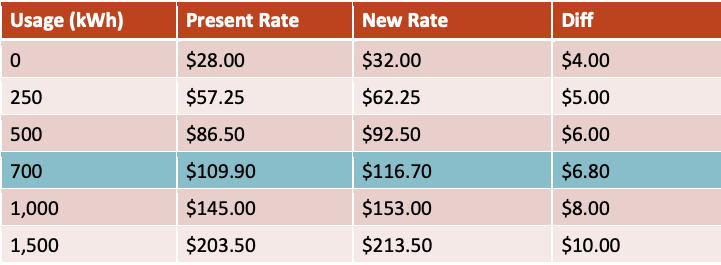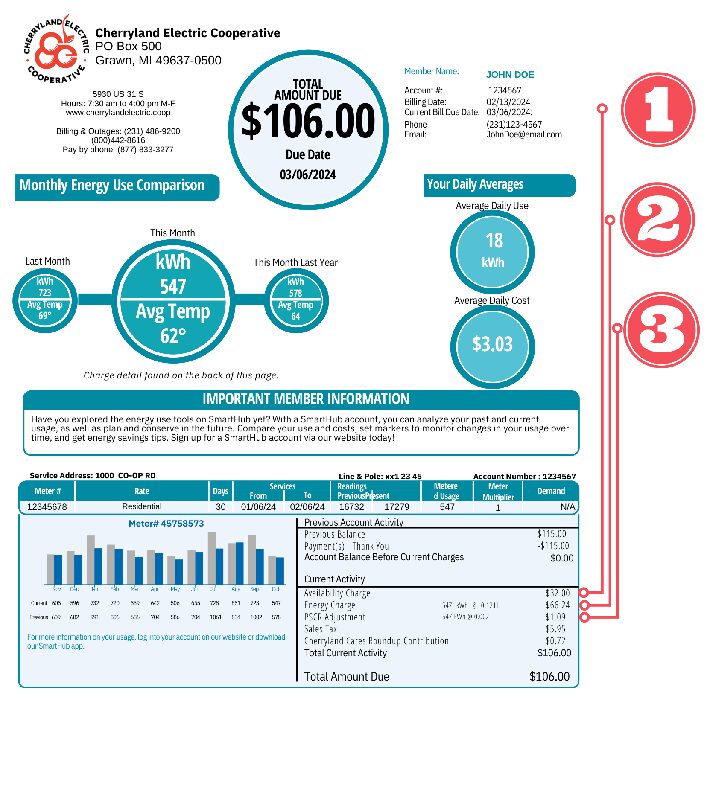Rate Change and You
During their March meeting, the Board of Directors voted on a proposed rate change. It was approved and it will first appear on your bill in June. As a not-for-profit electric cooperative, we only increase our rates when absolutely necessary to continue providing the safe, reliable service our members deserve. Still, we know a rate increase isn’t anyone’s favorite news. We’ve worked hard to address the cooperative’s financial needs while keeping the increase as modest as possible, at about 6% for the average residential member.
With multiple types of members who fall into different rate class categories, a rate change like this gets pretty complicated. We’re here to make sure all your questions about these changes are answered!
HOW DOES THIS AFFECT ME?
For the 95% of members who are considered residential,
there are three main parts of your bill.
Our average member uses roughly 700 kWh/month. With this rate increase, the average residential member will see a roughly $6.80 increase to their monthly bill. The table below can give you an idea of what this rate change will look like across different levels of usage. For a more precise look at what this new rate would look like for you, grab your last electric bill and find your kWh usage for last month. Plug that number into our rate calculator, and you’ll be able to compare what your bill will cost under the new rate.

NOTE: This tool calculates a future bill estimate. Due to the fluctuating nature of the PSCR billing mechanism, the calculated value of your current bill using this tool may vary slightly from your actual billing statement.
Cost Pressures
The Shocking Rise in Electric Utility Material Costs
We’ve all felt the pressure from rising prices due to inflation over the last few years, electric utilities included. The cost of everyday items are going up, but inflation is impacting utilities like Cherryland at significantly higher rates.






